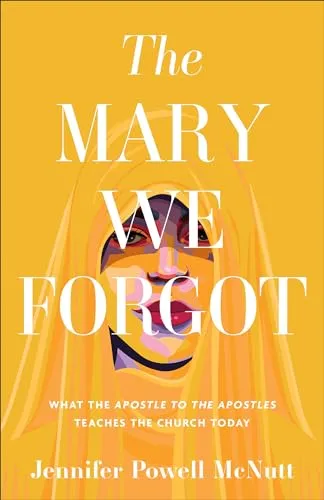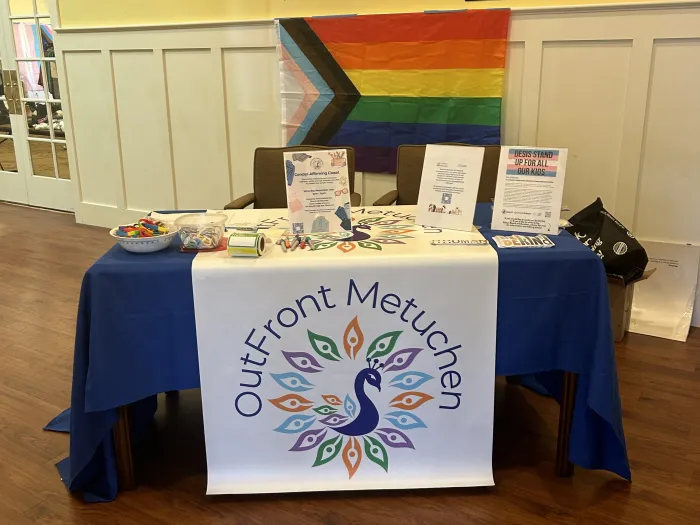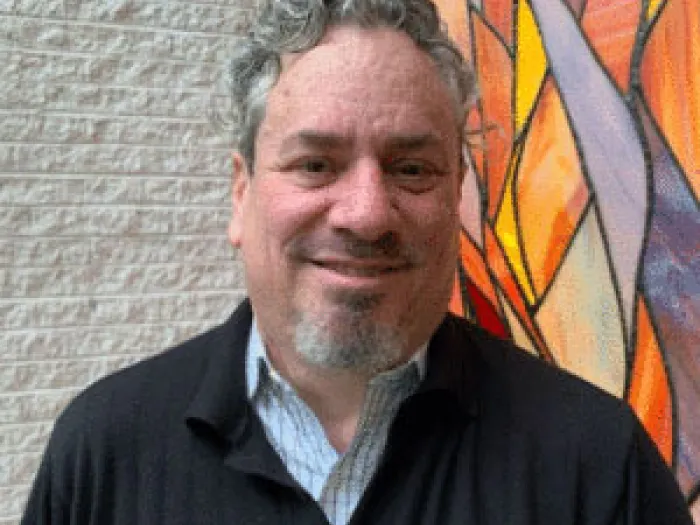What Mary Magdalene can teach us about discipleship
Presbyterian pastor and scholar the Rev. Dr. Jennifer Powell McNutt, author of ‘The Mary We Forgot,’ is a recent guest on ‘A Matter of Faith: A Presby Podcast’


LOUISVILLE — The Rev. Dr. Jennifer Powell McNutt, a Presbyterian pastor and scholar who teaches at Wheaton College and published “The Mary We Forgot: What the Apostle to the Apostles Teaches the Church Today” in October, appeared on the “A Matter of Faith” podcast earlier this month to discuss Mary Magdalene’s discipleship. Listen to McNutt’s 44-minute conversation with podcast hosts the Rev. Lee Catoe and Simon Doong here.
“We don’t always think about the women who are traveling with Jesus from Galilee to Jerusalem and are literally walking with him and in his footsteps and are part of his ministry,” she told the hosts. “That’s one of the reasons I love Luke 8:1-3,” a passage “we can easily skip over because we’re looking for the Parable of the Sower.”
“This is where Luke writes the names,” including that of Mary Magdalene, who’s named first among two other colleagues “and many other women who were there with Jesus,” McNutt said. “We get this sense she has been healed by Jesus and has completely transformed her life. Whatever it was before, she is now fully devoted and focused on Jesus.”
“She is giving of her resources as well,” McNutt noted. “In Mary Magdalene’s case, she is again highlighted as being faithful at the cross, faithful at the tomb and as the body is being put into the tomb. She sees the closing of the tomb.” As soon as she can after the sabbath, she is “present to care for Christ. All of that faithfulness — that readiness to focus on Christ and dedicate her life to Christ — is rewarded with his presence, his calling and his sending of her. I think there’s a lot there.”
Many Christians think of her as a prostitute, the result of a conflation of anointing stories presented in the gospels, McNutt said. “If a woman is described as a sinner, then it must be a sexual sin and therefore she’s a prostitute,” that line of reasoning goes. But nowhere do the gospel writers call her that. She is described as a woman who is demon possessed. “There is a real obstacle for our churches to see her and understand her story — what it meant to be delivered by Christ’s hand,” according to McNutt.
The medieval church held her up as an apostle to the apostles, McNutt said. “The church has seen her as not just delivering a one-time message to the remaining disciples,” she said. “She is invited into the mission of the church that really begins with Pentecost.”
Different traditions, including Eastern Orthodox, Roman Catholic and Protestants, don’t agree on where Mary Magdalene ended up. McNutt’s family traveled to France “to track the story and better understand” her. “We were Presbyterian Protestants doing this, but with a lot of respect, interest and openness to seeing and experiencing those places,” she said. “As part of the body of Christ and as Christians who believe in resurrection, we are built into relationship with those who have gone before us, the community of saints.”

Each of the gospel writers mention Mary Magdalene multiple times — nearly as often as they cite Mary the mother of Jesus, McNutt said. “The very fact they are naming women is significant for us, and we often miss that,” she said. Also significant is that once she is healed of her demons, Mary Magdalene is included with those who followed Jesus closely, unlike the Gerasene demoniac, whom Jesus turns away following the man’s healing so that he may “declare how much God has done for you.”
“We can infer plausibly there was some sort of invitation for Mary Magdalene to join, and she became a patroness of his ministry,” McNutt said. “It’s important for us to remember her rightly and see what Scripture is saying about her and retrieve and recover some of what the church has done in the past.”
The Bible “isn’t afraid to highlight women who are prostitutes who have been faithful and part of the lineage of Christ,” she noted. “As a church, we frequently turn the stories of women into backstories of prostitution that are unnecessary and often inaccurate as well. Scripture is absolutely clear that a prostitute can have a calling to serve Christ, and that their life can be transformed by Christ. Luke talks about this with tax collectors and prostitutes, so that’s part of Christ’s radical kingdom. But it’s not Mary Magdalene’s story.”
When we fail to read the Bible in its historical context, “We miss so much about what’s being highlighted for us there,” she said. “Sometimes a generation has a question that a previous generation couldn’t have even thought of, or it wasn’t important to them. Letting that generation ask their questions and seek to bring the proclamation of Christ to that particular time is good too. Now we build on that.” The church today “is facing other questions. We have new insight, and we can bring that to the text today.”
Doong asked what Mary Magdalene has to tell us during the season of Advent about the coming birth of Christ.
“I love that question,” McNutt said. “When we were hiking up to the cave church in the south of France to see a church that remembers Mary Magdalene’s presence, there was a Pieta depiction of Mother Mary holding Jesus’ body.” The statue has Mary Magdalene at Jesus’ feet. “I think it’s a wonderful expression of theology,” McNutt said. “It focuses on the body of Christ, the full divining of Jesus and what that means for the transformation of each one of us. I love that pairing. When we think of the Mother Mary, we think of the incarnation — God coming near” and “the vulnerability of a human body as a baby growing up.”
John 20:17, where the risen Christ orders Mary Magdalene not to cling to him but to go tell his brothers that he will soon ascend to rejoin God, is “so important in our thinking about Mary Magdalene,” McNutt said, calling it “a signal of her apostolicity.”
“That’s the good news of the gospel,” she said, “that we have a God who welcomes both men and women.”
You may freely reuse and distribute this article in its entirety for non-commercial purposes in any medium. Please include author attribution, photography credits, and a link to the original article. This work is licensed under a Creative Commons Attribution-NonCommercial-NoDeratives 4.0 International License.




